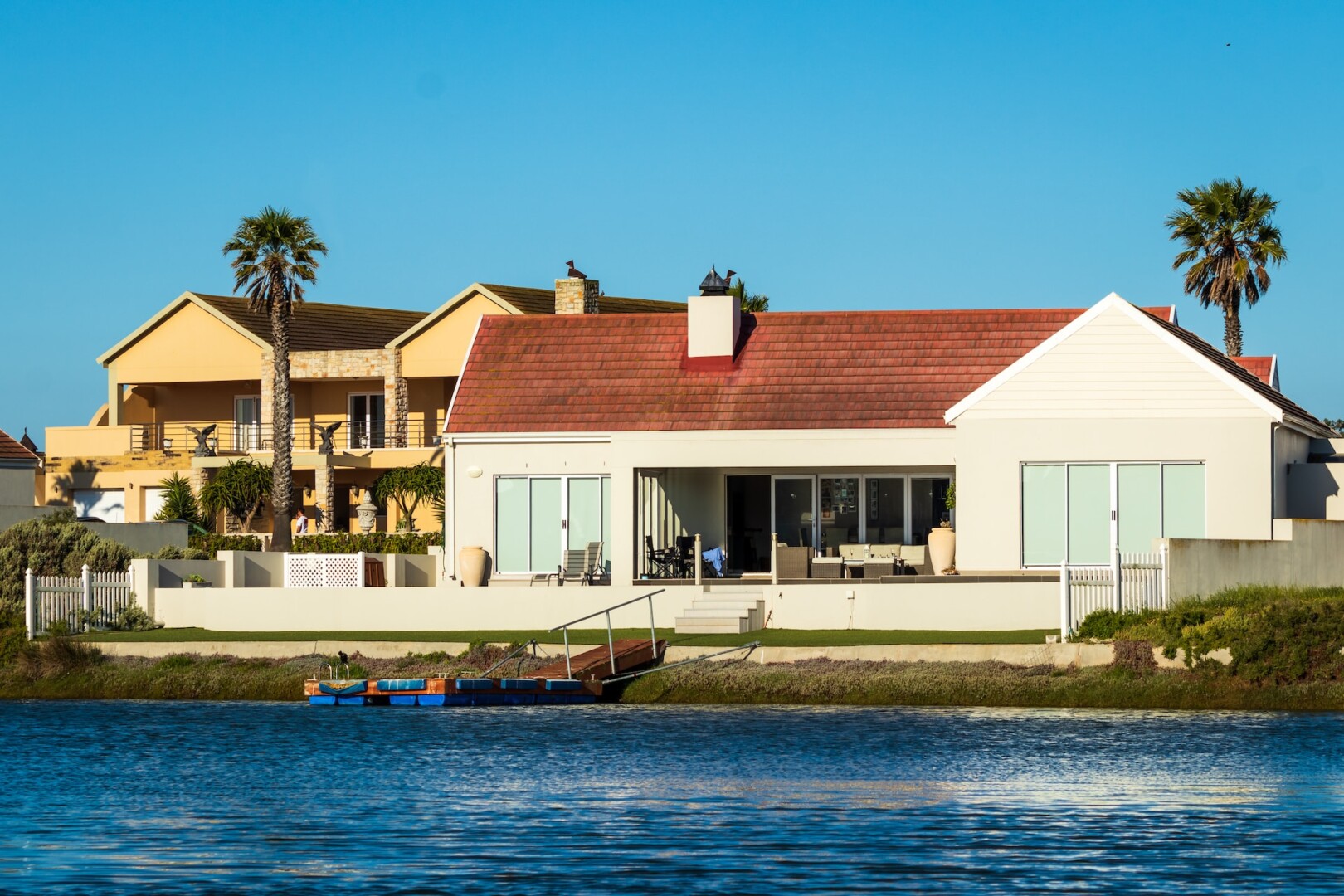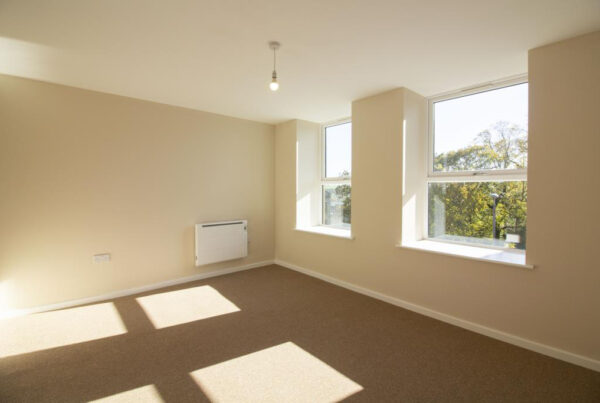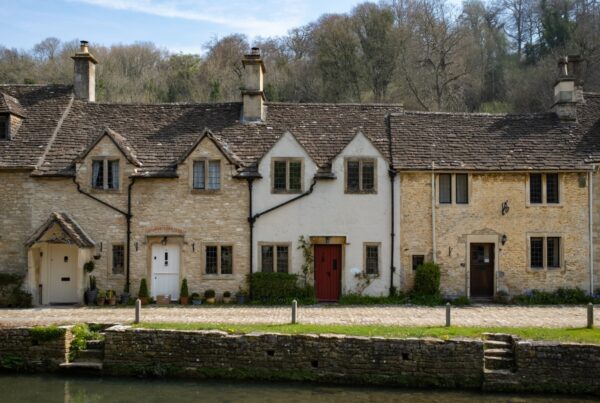Everyone loves a trip away, so it’s no surprise that the holiday home investment market — also called the holiday let investment market — is booming.
According to Property Reporter, new owner enquiries from prospective holiday home investors rose by 173% from 2022 to 2023. This property investment path is potentially profitable too — the average holiday homeowner earned £24,000 from their vacation property in 2022, up a massive 59% from before the pandemic.
But are holiday homes good investments in reality? While any real estate investor worth their salt should at least consider investing in holiday homes, like any form of property purchase, it’s crucial to weigh up the pros and cons before committing. This is precisely why we’ve decided to write a definitive guide to holiday let investment to help investors come to a decision.
As a property investment company with over 20 years of experience assisting all kinds of investors in starting and expanding their portfolios, we’re perfectly placed to advise on this subject.
Firstly though, what exactly are holiday homes and what does holiday home investment involve?
Holiday let investment guide

What are holiday homes?
Holiday homes — which are also known as vacation homes, second homes or short-lets — are properties that are primarily used as temporary residences for individuals or families during holidays. They also tend to be good candidates for Airbnb short-term holiday lets. These properties are typically located in desirable vacation destinations, such as beach towns, mountain resorts, or rural areas with natural attractions. Holiday homes vary greatly in size, amenities, and price, and can take various forms, including:
- Cottages: Small, cosy houses often located in rural or scenic areas.
- Cabins: Rustic, log-built homes typically found in wooded or mountainous regions.
- Beach houses: Houses located near or on the beach, offering easy access to the shore and ocean views.
- Condos or apartments: Apartments or condominium units in resort areas or urban destinations that are owned for vacation purposes.
- Villas: Larger, often luxurious homes that are especially popular in tropical destinations.
- Ski chalets: Alpine-style properties located in ski resort areas, designed for winter holidays.

What we like about holiday let investment
Below are some potential pros of holiday home investment:
- High rental income: Popular holiday destinations can command high rental rates, particularly during peak seasons. Research shows that the average holiday home has a 0.5% higher yield than a traditional rental property.
- Potential for appreciation: Over time, the value of your holiday home is likely to appreciate, potentially resulting in a profitable sale if you decide to sell it in the future.
- Personal use: You have the option to use the property for holidays or as a second home, providing you with a place to relax and enjoy during your downtime.
- Potential for holiday savings: Owning a holiday home can save you money on accommodation expenses when you visit the area regularly.
- Long-term retirement plan: Some people purchase holiday homes with the intent of eventually retiring there, which can be a financially and emotionally rewarding retirement plan.
- Control over the property: You have control over the property, enabling you to make changes, upgrades, and renovations as you see fit to enhance its rental potential or personal enjoyment.
- Legacy and inheritance: A holiday home can serve as a valuable asset to pass down to future generations, providing a legacy and a cherished family retreat.
- Tax benefits: If you rent out a property that qualifies as a furnished holiday letting (FHL), you will be taxed as a business instead of an investment and enjoy a number of tax advantages as a result, including:
- Claiming Capital Gains Tax reliefs for traders.
- Being entitled to plant and machinery capital allowances for items such as furniture, equipment and fixtures.
- Any profits you make are counted as earnings for pension purposes.

Holiday let investment: areas of consideration
The main areas of consideration before getting started with holiday let investment include:
- Ongoing expenses: Holiday homes come with ongoing expenses such as property taxes, insurance, maintenance, and utilities. These costs can add up and impact your return on investment.
- Seasonal income: Rental income from a holiday home is often seasonal, with peak demand during specific times of the year. During off-peak seasons, it may be challenging to find renters, reducing your income potential.
- Property management: Managing a holiday rental property can be time-consuming and may require hiring property management services, which can eat into your rental income.
- Location-dependent: The success of a holiday home investment is highly dependent on the location. Changes in the local economy, tourism trends, or natural disasters can affect rental demand and property values.
- Regulatory challenges: Regulations around holiday homes are often subject to change, impacting your ability to rent out the property and make a profit. For example, the government is currently consulting on whether to give councils the power to deny short-term lets if they’re considered to take too much capacity away from the local housing market.
- Maintenance and repairs: Maintaining a holiday home can be more challenging than a primary residence, especially if it’s located in a remote area. You may need to arrange for repairs and maintenance from a distance.
- Emotional attachment: Holiday homes can lead to emotional attachment, making it difficult to make rational decisions about selling or managing the property, particularly if it’s a family retreat.
- Currency exchange risk: If your holiday home is in a foreign country, you may be exposed to currency exchange rate fluctuations when transferring funds for property-related expenses or rental income.

The verdict: are holiday homes good investments?
Holiday homes can be fantastic investments. As is the case with any form of property purchase, however, there are potential downsides to take into account, but in our opinion, the benefits outweigh these for most investors. Most relevantly to landlords, the numbers typically involved with holiday let investments really do speak for themselves.
However, it’s still vital to extensively research, plan, and execute your strategy in order to succeed with holiday let investments. We recommend following the steps below before taking the plunge:
- Work out your investment goals: Think about what you’re looking for from your investments. Do you want regular rental income, long-term capital appreciation, or a mix of both? Holiday homes can offer high rental yields, but the potential for capital appreciation may depend on factors like the location and market conditions.
- Consider your risk tolerance: As is the case with any form of investment, holiday let investment does come with certain risks, such as seasonality, regulatory challenges and currency exchange risks. Consider whether you want to take on these risks.
- Conduct market research: Perform market research to work out the demand for holiday homes in the location you want to invest in. Consider aspects like the number of tourists, what nearby attractions there are and the local economy.
- Think about an exit strategy: Plan for how you will exit the investment later down the line. Selling holiday homes might have specific challenges, so consider your long-term strategy.
- Speak to a property investment specialist: It’s highly advisable to consult a property investment specialist like Alesco before committing to holiday home investment. Real estate advisors have expert knowledge of such markets and can guide you on aspects like the pros and cons of holiday let investment, where the best properties are and what this type of investment involves.

How can I invest in holiday homes?
Holiday home investment involves steps like unearthing the ideal location, finding suitable properties, and actually buying a holiday home. Even seasoned investors can find this process challenging, which is why Alesco has been a trusted source of holiday investment advice for over two decades. Our expertise, comprehensive market insights, and in-depth knowledge of property investment enable us to assist both novice and experienced property owners in making sound decisions.
Drawing upon our extensive experience, a wealth of market information, and expert insights, Alesco can guide you in swiftly establishing a profitable holiday home portfolio. Whether your objectives involve securing consistently high rental yields or achieving robust capital growth, we can help you pinpoint exceptional property investment opportunities from our exclusive portfolio. Furthermore, we can help you with aspects like performing due diligence and actually buying a property.
Contact us to learn more or to make an enquiry.

Written by: Ben Whitaker
Experienced professional working in the real estate investments sector. Assisting and advising clients on the acquisition of property across a range of asset classes, with view to achieving robust return on investment.













